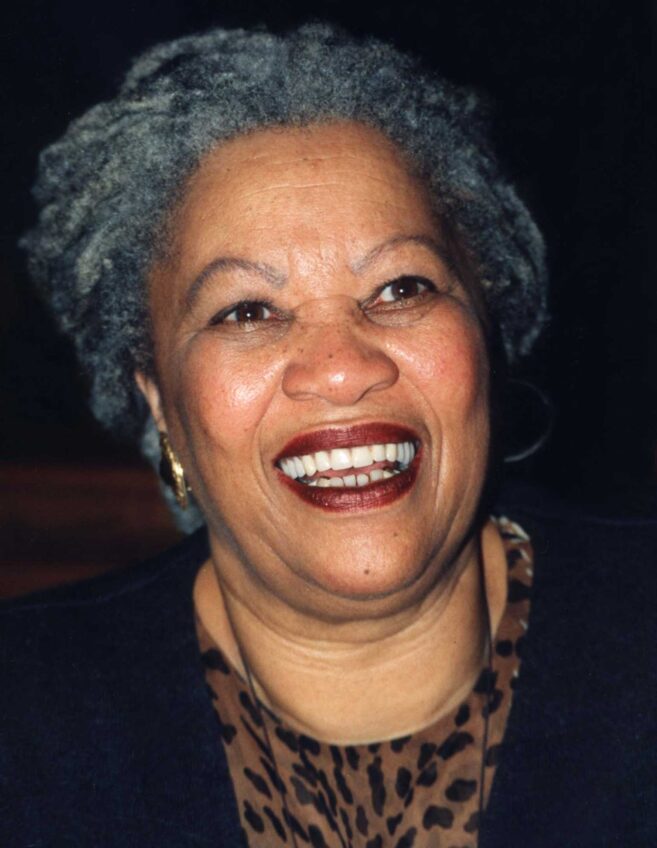President Donald Trump’s recent social media post complaining about how the Smithsonian Institution museums portray slavery is inaccurate, insulting, and a national embarrassment.
“The Smithsonian is OUT OF CONTROL, where everything discussed is how horrible our Country is, how bad Slavery was, and how unaccomplished the downtrodden have been — Nothing about Success, nothing about Brightness, nothing about the Future,” Trump wrote. “We are not going to allow this to happen, and I have instructed my attorneys to go through the Museums …,” the president continued. “This Country cannot be WOKE because WOKE IS BROKE.”
The president’s social media post followed an Aug. 12 letter to the Smithsonian by Trump administration officials demanding a “comprehensive internal review” of eight Smithsonian museums by the White House “to ensure alignment with the President’s directive to celebrate American exceptionalism, remove divisive or partisan narratives, and restore confidence in our shared cultural institutions.” The directive mentioned in the letter was an executive order Trump issued in March denouncing “a concerted and widespread effort to rewrite our nation’s history … as inherently racist, sexist, oppressive, or otherwise irredeemably flawed” and ordering an effort to “remove improper ideology” from Smithsonian museums, research centers, and the National Zoo.
I’ve visited all the Smithsonian museums and never cease to be impressed by how they accurately educate visitors about history, culture, science, and the arts in a nonpartisan manner. There is nothing “woke” about them. My view of the National Museum of African American History and Culture aligns with the view a visitor expressed in 2017 when he praised it as “a truly great museum” that was “incredible,” “done with love,” and “a meaningful reminder of why we have to fight bigotry, intolerance and hatred in all its very ugly forms.” That visitor in 2017 was President Trump. Too bad his view has changed. Visitors to the African American museum first see powerful exhibits about slavery. As a Black man, I find these particularly moving, knowing that my ancestors were abducted from their homes in Africa, brought to America in chains, and treated like animals rather than human beings.
You don’t have to be Black to be horrified by the depiction of slavery in the museum, any more than you have to be Jewish to be horrified by the murder of 6 million Jews as depicted in the United States Holocaust Memorial Museum, another outstanding Smithsonian museum. Slavery is as much a part of American history as the Holocaust is a part of German history. You can’t understand the history of either country without understanding these atrocities. To its credit, Germany requires Holocaust education in schools. Trump would be wise to learn from the German example — not hiding from an ugly chapter of his nation’s history, but shining a spotlight on it so later generations can learn from it.
We need to be honest about our past. There is simply no way to put a pretty face on slavery or downplay its barbarity and immorality. Importantly, Trump’s social media post saying Smithsonian museums concentrate on stories about “how unaccomplished the downtrodden have been” is not true. The African American museum devotes much space to telling the story of Black people overcoming slavery, systemic racism, and poverty to rise to levels of great accomplishment in just about every field. The many displays about Black abolitionists, civil rights figures, educators, physicians, scientists, lawyers, entertainers, athletes, government officials, business executives, and more are as inspiring as the stories of enslaved Black people are disheartening.
The fact that Black Americans could rise from slavery to the U.S. presidency of Barack Obama 144 years after emancipation is a testament to the justice of our system of government and the goodness of the American people. Racism has not disappeared, but the great progress our nation has made on the road to equality is something all Americans should learn about and be proud of. My own family has lived this story of Black success. My ancestors were enslaved. My late father, Raymond A. Bolden, who was born in 1933, struggled through poverty, racism, and homelessness to become an exceptional student, serve in the U.S. Air Force, and go on to become a civil rights lawyer and judge. He inspired me to become a lawyer as well and follow in his and my mother’s footsteps by also becoming a crusader for racial justice. As a lawyer, I’ve often seen witnesses “solemnly swear to tell the truth, the whole truth, and nothing but the truth” when they are called to testify in trials. We should expect our museums to do the same. President Trump should stop trying to prevent them from doing so.
A. Scott Bolden is an attorney, NewsNation contributor, former chair of the Washington, D.C. Democratic Party, and a former New York state prosecutor.






Leave a Reply
You must be logged in to post a comment.